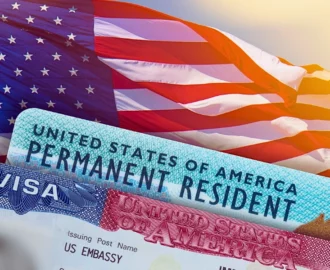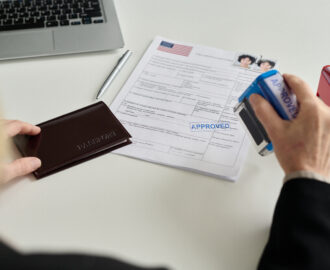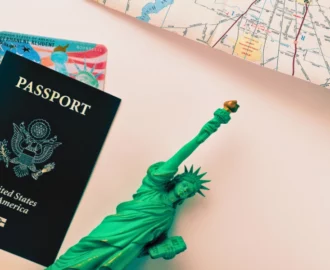Family-based immigration requires that U.S. citizens or residents petition on behalf of their relatives so they can move to the United States. Sponsors must file affidavits of support for their relatives who will be joining them in the U.S. The affidavits of support are not the first step in the process, however. In addition to the affidavits of support, the sponsors must be at least age 21, and the immigrants must pass background checks and health exams before they will be allowed to come to the country.
Sponsorship Requirements
U.S. citizens and residents can petition for relatives that fall into different categories. Citizens can petition on behalf of their immediate relatives, including their spouses, their minor, unmarried children who are younger than age 21 and their parents. Citizens may also petition for their relatives who fall in the preferential category. These include their adult children who are older than age 21 and their siblings. Lawful permanent residents are able to sponsor certain relatives that fall under the preference category, including their spouses and their unmarried children.
In addition to establishing these relationships, the would-be sponsors must file petitions to initiate the immigration process. They must also file affidavits of support that state that they will be financially responsible for their relatives when they move to the U.S. The affidavits of support can be legally enforced and last either until the relatives earn 40 quarters of work, which lasts approximately 10 years, or become U.S. citizens.
Before filing the affidavits of support, the sponsors must have filed their petitions and have received notices from the U.S.C.I.S. that their petitions have been approved. The relatives must have currently available visas and be scheduled to appear before a U.S. Consular Officer. If a citizen’s minor child, spouse or parent is already legally in the U.S., the sponsor should submit the petition and the affidavit of support simultaneously with the relative’s application to adjust his or her status.
In addition to sponsoring relatives, there are also other types of sponsorships. Employers may apply to sponsor employees, and people may apply to sponsor orphans for adoption. An immigration attorney assists people with different types of sponsorship for immigrants to live in the U.S.




